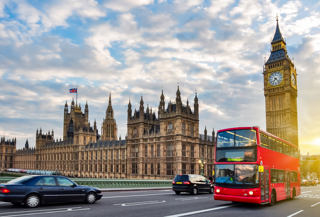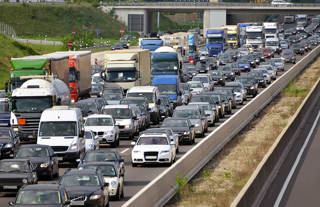The Transport Committee has announced it will launch a formal inquiry into road pricing next year.
It says it wants to start a national debate about road pricing – something that has been lacking for more than a decade since the then Labour Government’s road pricing plans were abandoned.
Revenue from fuel duty is down by £19 billion since 2000 and the £40bn annual income from fuel duty and Vehicle Excise Duty (VED) is likely to decline sharply in future, and may end entirely if the Government keeps its pledge to fully decarbonise road transport within two decades.
Chair of the Transport Committee, Lilian Greenwood MP, said: “It’s been almost 10 years since the last real discussion of national road pricing.
“In that time, we have become much more aware of the dangers of air pollution and congestion. Parliament declared a Climate Emergency in May, and local councils have begun to do the same. This requires a serious response, including rethinking how we manage our road network.”
Revenue from fuel duties now stands at £28bn a year, which is 1.3% of national income. Revenue peaked at 2.2% of national income in 1999–2000. Had it remained at that level, the Exchequer would currently be getting an extra £19bn.
These should reflect at least distance driven, and ideally vary according to when and where journeys take place. Those driving in busy places would pay more, but the majority of journeys would be taxed less heavily than at present.
The IFS also says there is an advantage in acting quickly: it will be much harder politically to introduce such taxes only after revenue from fuel duties has fallen much further and many people are driving hybrid or electric cars in the expectation of paying little tax on them.
Greenwood continued: “We cannot ignore the looming fiscal black hole. We need to ask how we will pay for roads in the future and in answering that question we have an opportunity for a much wider debate about our use of road space, cutting carbon emissions, tackling congestion, modal shift and how we prioritise active travel.
“Tackling the Climate Emergency is essential but this is about more than what we must do to meet that challenge. It’s also about our health and the sort of towns and cities we want to live in.
“This isn’t about pricing drivers off the road; it’s about making sure that as many people as possible have a say in future plans so that we can manage the changes to come. The Transport Committee wants to kickstart this conversation.”
Issues to be considered by the inquiry will include pros and cons of road pricing including the economic, environmental, and social impacts.
It will also look at the lessons that can be learnt from existing schemes at the national level, local level, and overseas. Road pricing does not only mean tolls – it also includes congestion charges, an HGV levy, workplace parking levy, low emission and clean air zones, it said.
RAC head of roads policy Nicholas Lyes said: “There is no question that the existing fuel duty system is on borrowed time as we move towards electric and other zero emission forms of car travel. It’s therefore clear that business as usual isn’t an option moving forward.
“We know through research that drivers are open to a new form of motoring taxation but three-quarters of those we questioned are worried they may end up paying more tax than they do now. For this reason we believe any new tax should be in place of the current one and not in addition to it.
“Our research also suggests that a sizeable number of drivers would see a ‘per mile’ road pricing option as fairer than the current system of paying fuel duty, and there is a large level of support for the principle of the ‘more you drive, the more you pay’. In addition, drivers tell us that any ‘pay per mile’ system of road pricing would make them consider cutting out short journeys.”






















Sage & Onion - 10/10/2019 12:30
This is the first step to recovering the tax losses from the take up of electric vehicles. Fuel duty is going to decline year on year, and its probably too complex to apply a tax duty on electric used for vehicle charging when not every chargepoint is a Smart unit. So the easiest, and perhaps the fairest and simplest form of taxing is a pay on use pence per mile system, which effectively is what fuel duty is. However there would have to be different rates for different types of vehicles, and with incentives for electric and other ULEV's, otherwise we are going to accuse the government again of encouraging the take up of one particular fuel type only to penalise it in future years. It can't be difficult to collect mileage data as its collected on the MOT certificate record, and with the increasing introduction of connectivity in vehicles.